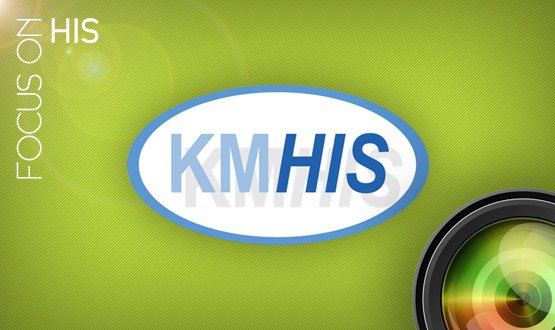Focus on: Kent and Medway HIS
- 23 January 2012

Kent and Medway Health Informatics Service is using the NHS Number to create 15-month patient history reports for high spend patients as part of its engagement with emerging clinical commissioning groups.
Head of business intelligence Paul Bolton said the HIS had been working closely with two CCGs in West Kent to build more intuitive financial and clinical reporting, allowing them to look at budget against spend and drill down to see referral patterns for individual GPs within a practice.
Using the NHS Number, the HIS can produce reports that track high-spend patients from within different specialty areas and present a 15-month history of their usage and costs. To do this, it relies on a comprehensive data warehouse which combines primary care data, the Secondary Uses Service, and community data.
“Once the stakeholders are using separate sources of data there will always be conflict and never resolutions – a single source of data, by its very nature, will gradually and steadily improve in completeness and accuracy,” he explained. “We have access to daily data direct from the acute trusts, and that enables almost real time reporting.”
Daily A&E reports- using patient administration system data from acute trusts –are one of the real time reports being rolled out for CCGs in West Kent.
They show a practice whether any of its patients were admitted to A&E the previous day, for what reason, and at what cost. These reports will be incorporated into real-time dashboards to be introduced across the Kent and Medway primary care trust cluster.
Keeping customers
The HIS has been doing practice-based commissioning reports for nearly four years, with 400 licenses across the area and 250 at practice level.
It uses practice data to report on conditions such as stroke and coronary heart disease, enabling users to look across a practice at the number of patients at risk of serious illnesses and view details at patient level. Work has started on quality outcome reports and dashboards covering osteoporosis, prescribing trends, COPD and dementia.
However, health informatics services in many areas are now facing a new, more competitive environment as a result of the government’s latest reforms of the NHS; and its apparent enthusiasm for opening up IT, information and other ‘commissioning support’ services to competition.
In Kent and Medway, where there are eight emerging CCGs, the reality of this more competitive environment was demonstrated when Maidstone and Malling CCG announced that it was going to move away from the HIS-provided business intelligence service, and purchase MedeAnalytics’ Clinical Commissioner system.
In contrast to Maidstone and Malling, however, the Dartford, Gravesham and Swanley CCG has been working closely with Kent and Medway HIS on the support it will need in the new commissioning environment.
GP lead for the group, David Woodhead, said services like the live A&E reports helped practices and commissioners identify where additional support or intervention was needed.
“Using the flexibility offered by the KMHIS team, we were able to develop a report showing care home use of A&E – detailing patients presenting complaints and whether they were admitted or not,” he said.
“This led directly to interventions by community providers, Kent County Council, and GPs to give extra support to reduce A&E attendances for this group.”
“Given the new world of CCGs and the critical requirement for quality of patient care, the ability to define and capture quality markers to support our commissioning is vital and the HISbi service is proving its worth by linking activity, financial and clinical outcomes together.”
Focusing on CCGs
Bolton said it was vital for the HIS to get out and talk to CCGs about their IT needs and develop local systems. “There’s a view that NHS staff are not able to build business intelligence systems; but we have been building them for seven to eight years now so we have a lot of experience,” he said.
“In a couple of years’ time, I’m hoping that we will have worked with the CCGs to develop systems that they find indispensible.”
The HIS employs more than 250 people based at sites across Kent. It has more than 30,000 users and provides IT services to health, social care, third sector and private organisations.
Managing director Richard Gifford said the organisation was in a good competitive position because it was a not-for-profit organisation and hosted by an acute trust.
“In line with this, and the current changes that are taking place with the PCTs and CCGs, we are increasingly taking a more independent commercial stance on what we do and are starting to evaluate our future business entity,” he said.
“We are working to partner with the CCGs and as the transition of PCT to CCG takes place, our engagement with the CCGs will strengthen further. We see a very promising, bright and exciting future for KMHIS.”




